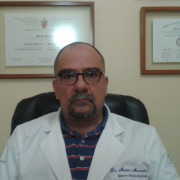
There has not been a formal evaluation of how frequently and to what extent surgical reintervention in patients with persistently active acromegaly may achieve significant, albeit incomplete, reductions in growth hormone (GH) and insulinlike growth factor-I (IGF-I) levels. Of importance, recent studies suggest that the response to radiotherapy and pharmacotherapy is better with lower degrees of hypersomatotropism. The objective of this study was to evaluate the outcome of surgical reintervention in patients with active acromegaly at our institution between 1995 and 2005. We retrospectively evaluated the outcome in 53 patients with active acromegaly (49 with macroadenomas) who underwent a second operation a mean of 24.1 +/- 25.2 months after the first intervention. Basal and postglucose GH as well as IGF-I levels were analyzed at diagnosis and after the first and second pituitary procedures. Basal GH decreased in 38 patients (72%): to








